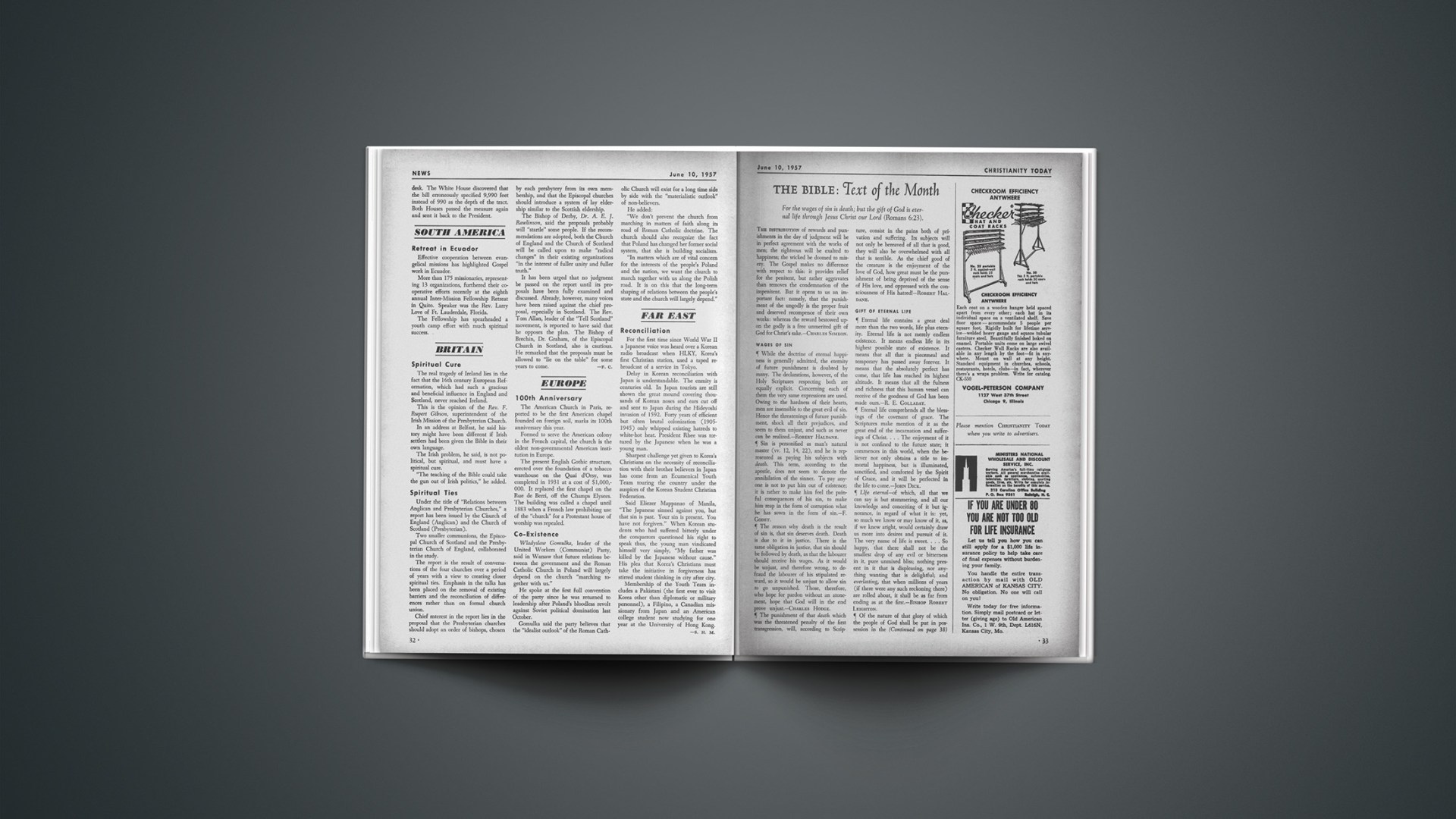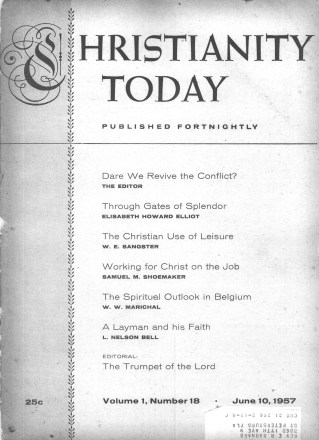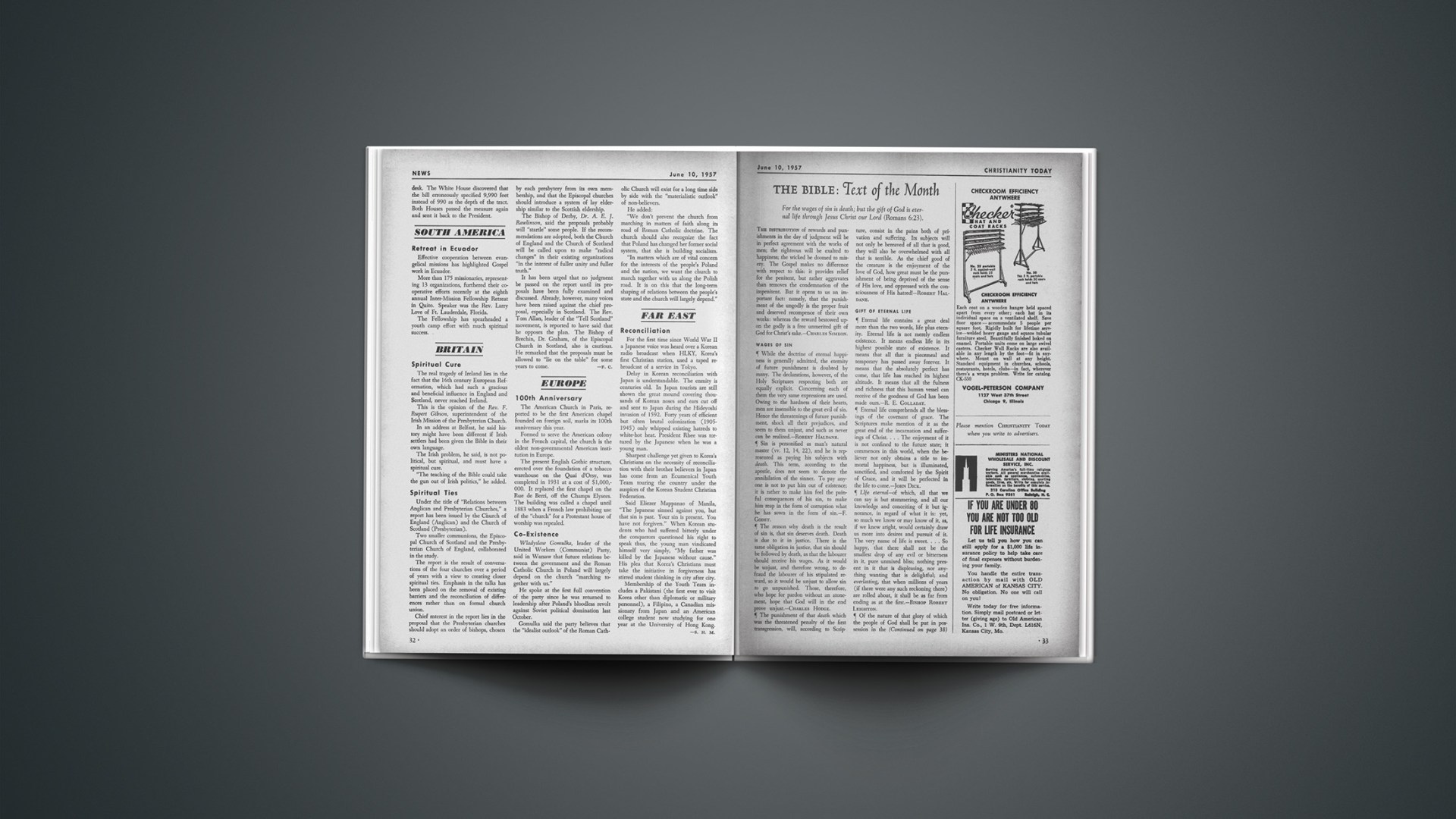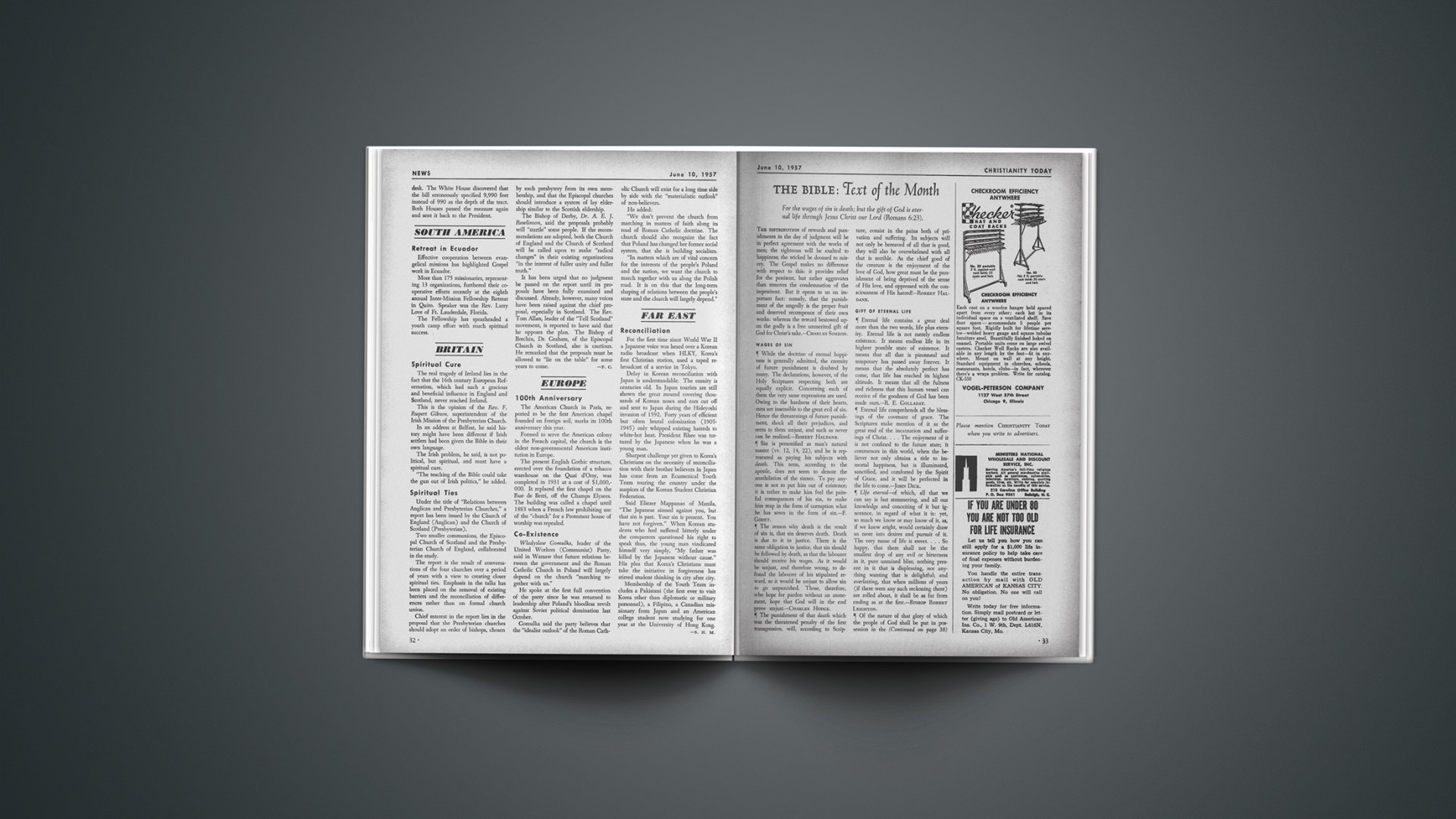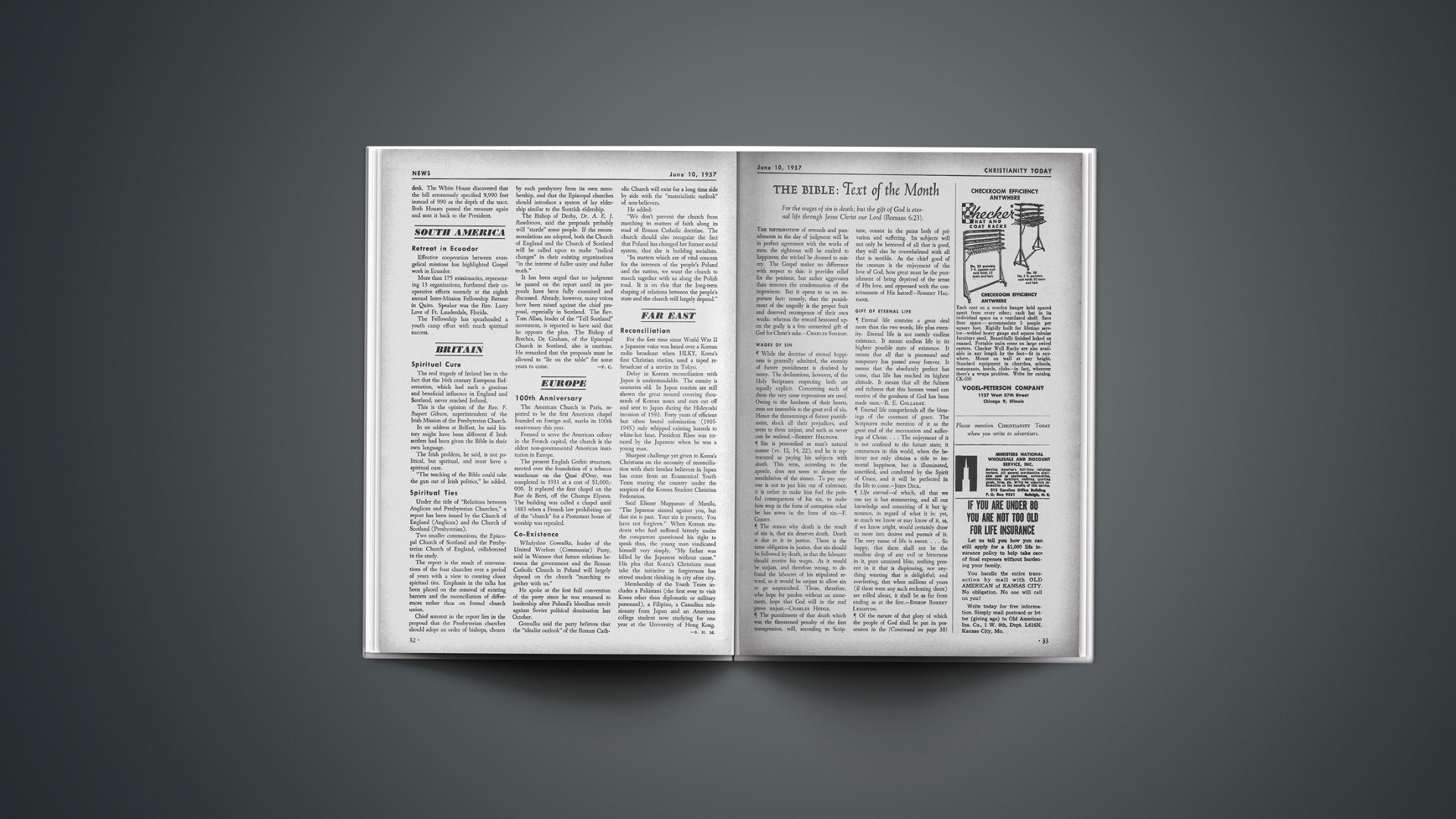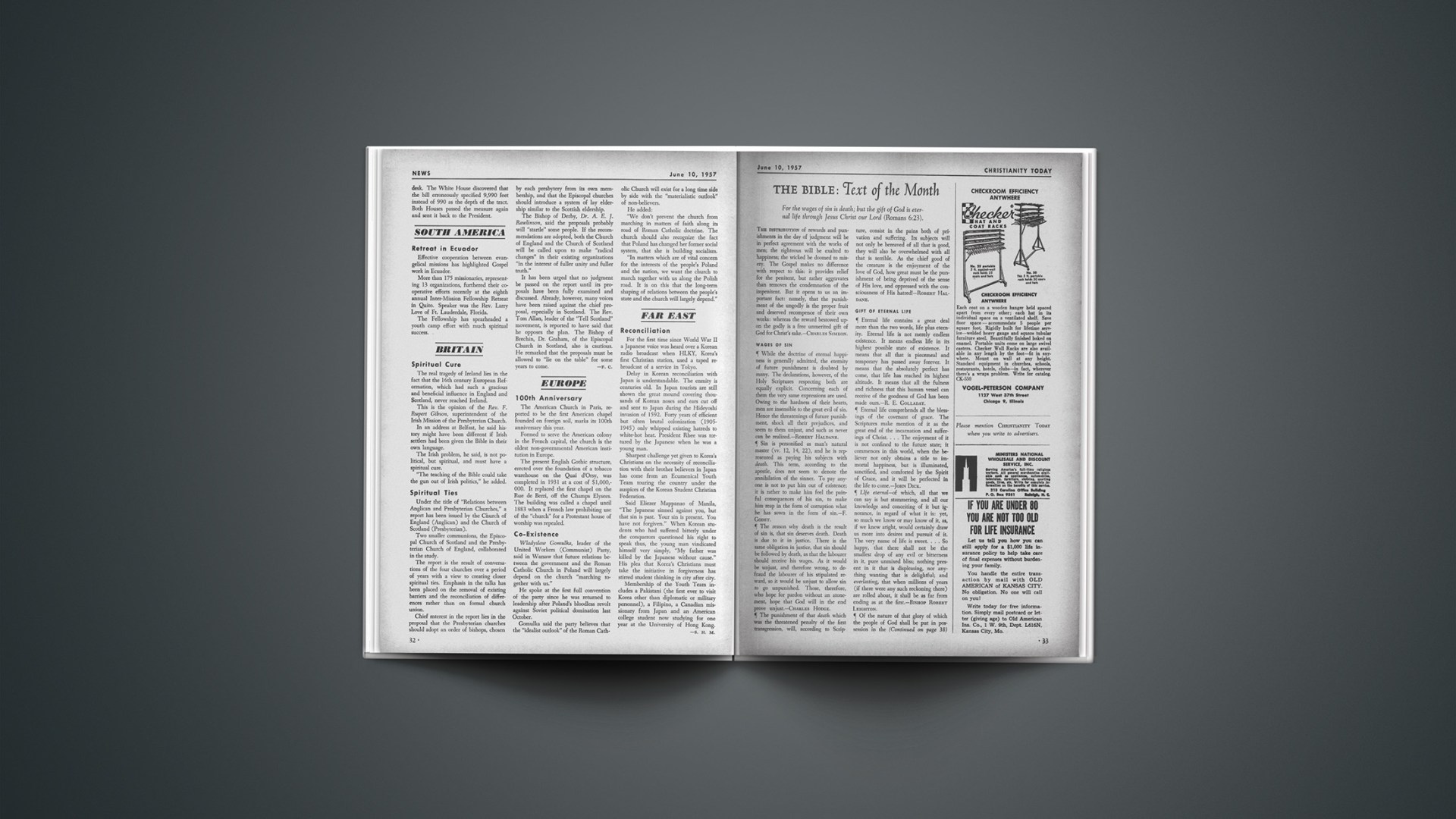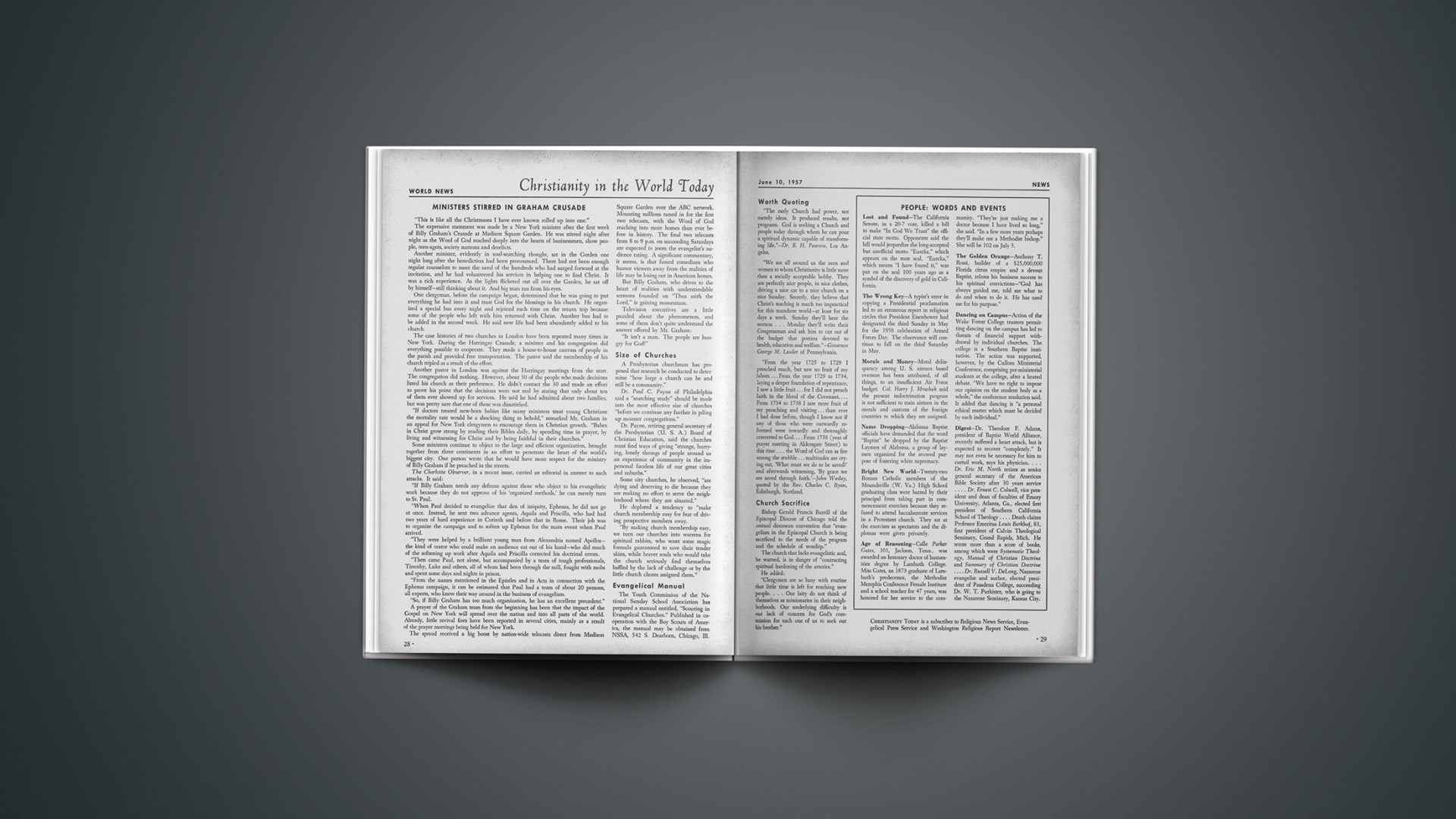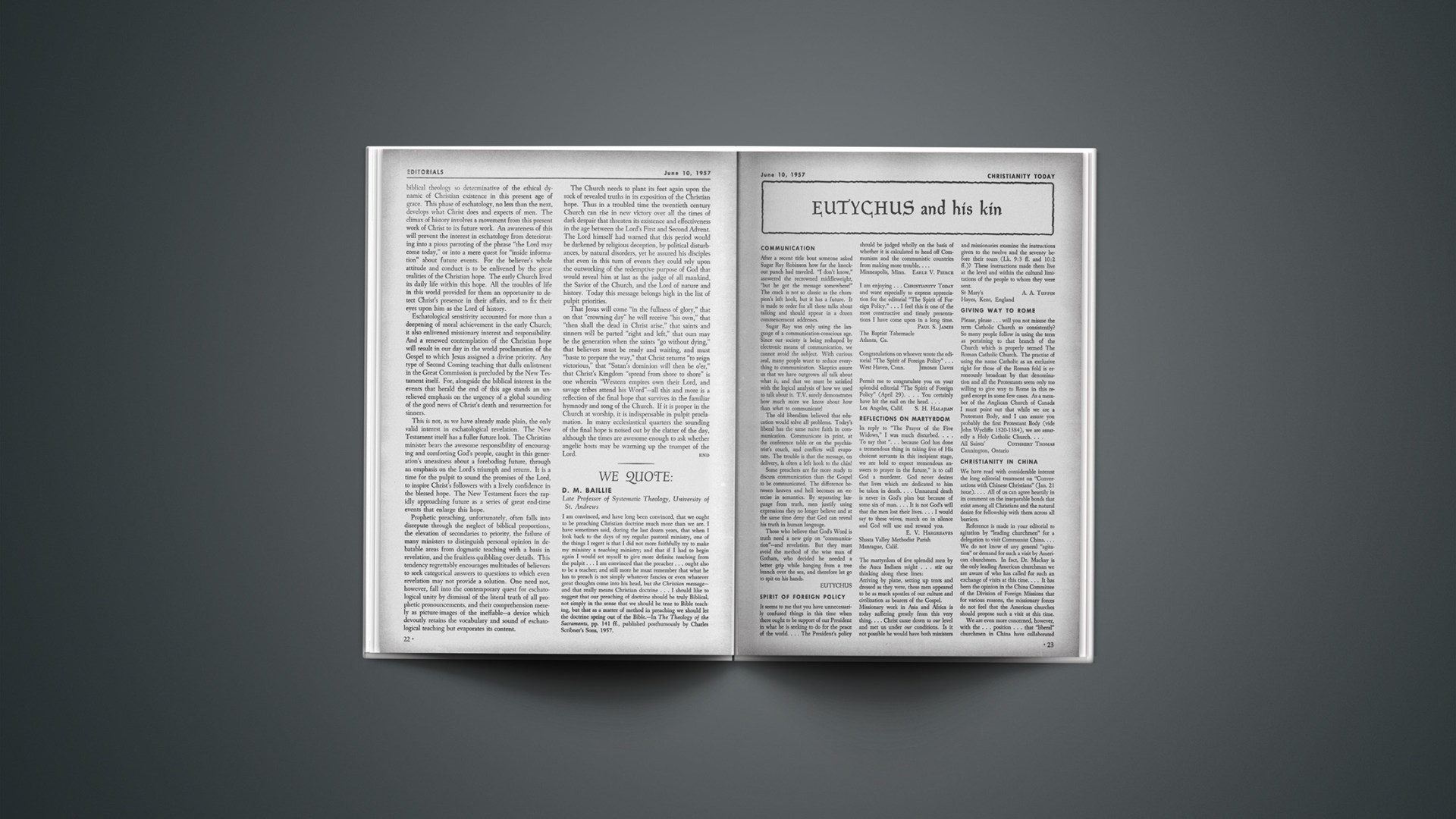For the wages of sin is death; but the gift of God is eternal life through Jesus Christ our Lord (Romans 6:23).
The distribution of rewards and punishments in the day of judgment will be in perfect agreement with the works of men; the righteous will be exalted to happiness; the wicked be doomed to misery. The Gospel makes no difference with respect to this: it provides relief for the penitent, but rather aggravates than removes the condemnation of the impenitent. But it opens to us an important fact: namely, that the punishment of the ungodly is the proper fruit and deserved recompence of their own works: whereas the reward bestowed upon the godly is a free unmerited gift of God for Christ’s sake.—CHARLES SIMEON.
Wages Of Sin
While the doctrine of eternal happiness is generally admitted, the eternity of future punishment is doubted by many. The declarations, however, of the Holy Scriptures respecting both are equally explicit. Concerning each of them the very same expressions are used. Owing to the hardness of their hearts, men are insensible to the great evil of sin. Hence the threatenings of future punishment, shock all their prejudices, and seem to them unjust, and such as never can be realized.—ROBERT HALDANE.
Sin is personified as man’s natural master (vv. 12, 14, 22), and he is represented as paying his subjects with death. This term, according to the apostle, does not seem to denote the annihilation of the sinner. To pay anyone is not to put him out of existence; it is rather to make him feel the painful consequences of his sin, to make him reap in the form of corruption what he has sown in the form of sin.—F. GODET.
The reason why death is the result of sin is, that sin deserves death. Death is due to it in justice. There is the same obligation in justice, that sin should be followed by death, as that the labourer should receive his wages. As it would be unjust, and therefore wrong, to defraud the labourer of his stipulated reward, so it would be unjust to allow sin to go unpunished. Those, therefore, who hope for pardon without an atonement, hope that God will in the end prove unjust.—CHARLES HODGE.
The punishment of that death which was the threatened penalty of the first transgression, will, according to Scripture, consist in the pains both of privation and suffering. Its subjects will not only be bereaved of all that is good, they will also be overwhelmed with all that is terrible. As the chief good of the creature is the enjoyment of the love of God, how great must be the punishment of being deprived of the sense of His love, and oppressed with the consciousness of His hatred!—ROBERT HALDANE.
Gift Of Eternal Life
Eternal life contains a great deal more than the two words, life plus eternity. Eternal life is not merely endless existence. It means endless life in its highest possible state of existence. It means that all that is piecemeal and temporary has passed away forever. It means that the absolutely perfect has come, that life has reached its highest altitude. It means that all the fulness and richness that this human vessel can receive of the goodness of God has been made ours.—R. E. GOLLADAY.
Eternal life comprehends all the blessings of the covenant of grace. The Scriptures make mention of it as the great end of the incarnation and sufferings of Christ.… The enjoyment of it is not confined to the future state; it commences in this world, when the believer not only obtains a title to immortal happiness, but is illuminated, sanctified, and comforted by the Spirit of Grace, and it will be perfected in the life to come.—JOHN DICK.
Llfe eternal—of which, all that we can say is but stammering, and all our knowledge and conceiting of it but ignorance, in regard of what it is: yet, so much we know or may know of it, as, if we knew aright, would certainly draw us more into desires and pursuit of it. The very name of life is sweet.… So happy, that there shall not be the smallest drop of any evil or bitterness in it, pure unmixed bliss; nothing present in it that is displeasing, nor anything wanting that is delightful; and everlasting, that when millions of years (if there were any such reckoning there) are rolled about, it shall be as far from ending as at the first.—BISHOP ROBERT LEIGHTON.
Of the nature of that glory of which the people of God shall be put in possession in the day of their redemption, we cannot form a clear and distinct idea.… Their blessedness will consist in a knowledge of God and His mysteries, a full and exquisite sense of His love, ineffable consolation, profound tranquillity of soul, a perfect concord and harmony of the soul with the body, and with all the powers of the soul among themselves; in one word, in an assemblage of all sorts of blessings.—ROBERT HALDANE.
Through Jesus Christ
Christ is the foundation of all spiritual life that is in us. He is the second Adam that conveyeth all that is spiritually good. “Because I live, you shall live also” (John 14:19). “I am come that they might have life, and that they might have it abundantly” (John 10:10). Christ came that we might have life, and that we might have abundance of life preserved for us, such abundance as he enjoyeth himself in the heavens.—RICHARD SIBBES.
Christ, God-man, Mediator, is the life, that eternal life, in respect of his threefold offices of king, priest, and prophet. As prophet, he is the life by way of revelation, discovering this eternal life to us; as priest, by way of impetration, procuring this eternal life for us; as king, by way of collation, conferring this eternal life on us. And as the fulness of water is dispensed by the sea to the earth, and the fulness of light is communicated by the sun to the air; so the fulness of grace and glory, of life, even eternal life, is conveyed by Christ to his church.—NATHANAEL HARDY.
Heaven is procurred, prepared, taken possession of, and retained, by means of the atonement. The blood of the covenant constitutes the title to its possession. The heavenly things themselves are purified with better sacrifices, than those by which the patterns of things in the heavens were purified. We have boldness to enter into the holiest of all only by the blood of Christ, and to the Lamb in the midst of the throne are the redeemed indebted for the permanency of their glory and bliss. Those immortal honors, those glorious hopes, those perennial enjoyments, which are imaged by crowns of glory, palms of victory, harps of gold, and rivers of life, have all their meritorious source in the cross.—WILLIAM SYMINGTON.
The Lord’s design is that His life may reappear anew in his people or be reproduced in them; and that there may be such a symphony, so to speak, that his people shall promote on earth the great object for which he lives in glory. The life of love and active service which he lived on earth is to be renewed and reproduced in all his people. And when we inquire how this is attained, we find that the tide of resurrection life flows into his people, in proportion as they keep before them His abasement, atoning death, and resurrection as the great themes of faith and the great springs of action.—GEORGE SMEATON.
If the greatest love hath been manifested in giving Christ to the world, then it follows that the greatest evil and wickedness is manifested in despising, slighting, and rejecting Christ. It is sad to abuse the love of God manifested in the least gift of providence; but to slight the richest displays of it, even that peerless gift, wherein God commends his love in the most astonishing manner, this is sin beyond description. Blush, O heavens, and be astonished, O earth; yea, be ye horribly afraid! No guilt like this.—JOHN FLAVEL.

